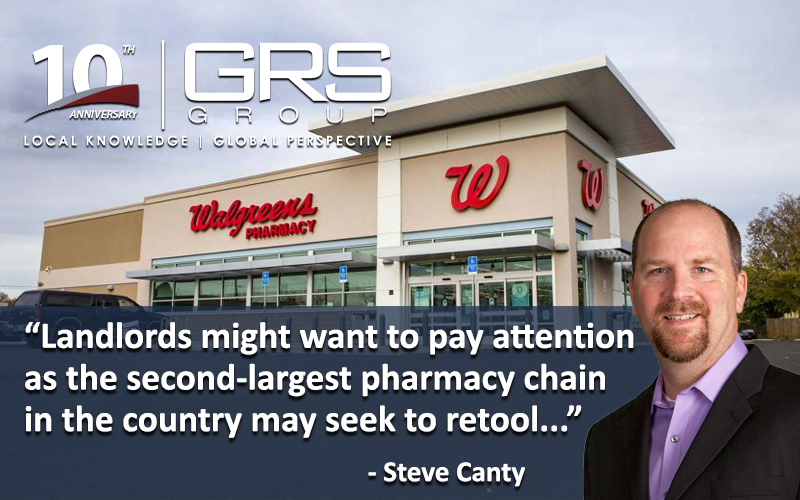Walgreens Boots Alliance could face some challenges and changes soon, and landlords might want to pay attention since it’s the second-largest pharmacy chain in the country and takes up a significant portion of commercial real estate.
Unfortunately, given that healthcare companies involved in opioid distribution are facing major lawsuits, it was by far the largest pharmacy chain to order those pills during the height of the epidemic. As a result, it is expected to go to trial in a federal lawsuit, a portion of which has already involved a major drug-company settlement.
While this is going on, there is talk about Walgreens possibly going private in what would reportedly be the largest leveraged buyout ever, since it has an estimated market value of $55 billion. Walgreens is discontinuing its in-store health clinics and is operating differently from CVS-Aetna, which is expanding in its overall healthcare providing services. Going private could theoretically help Walgreens retool its model without having public-company scrutiny, while it tries to gain back market share it has lost to CVS, analysts say.
During its most recent fiscal year, which ended at the close of last month, Walgreens earnings were down 20.7 percent, to $4 billion, though year-over-year sales rose 4.1 percent.
On the retail real estate end, Walgreens is faces a bit of an uphill battle compared to rival CVS, according to The Boulder Group’s Q3 Net Lease Drug Store Report. CVS was trading at a 5.6 percent cap rate during the third quarter, down from 5.65 percent the previous year-ago period. Meanwhile, Walgreens was at 6.06 percent, albeit down from 6.15 percent.
CVS had a very strong third quarter, with year-over-year revenues shooting up 36.5 percent and net income rising 10 percent.
Says The Boulder Group report: “many investors have a preference for CVS properties. CVS properties typically have lower rent resulting in greater popularity from investors. In the third quarter of 2019, CVS properties with more than 20 years remaining of lease term had cap rates 25 basis points lower than Walgreens properties.
The same differential held true for properties with 15 to 19 years of lease term remaining.”
The report also says that what real estate professionals find more promising about Walgreens lately is that there is an increase in transparency after closing its acquisition of 1,900 stores from Rite Aid, better understanding the timetable of those locations being put under the Walgreens banner.
But would landlords have the same degree of transparency if Walgreens were taken private? It remains to be seen.

